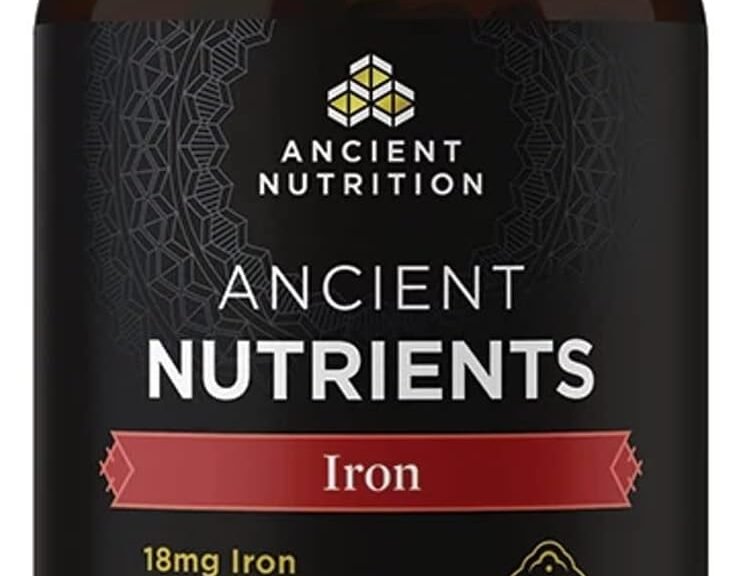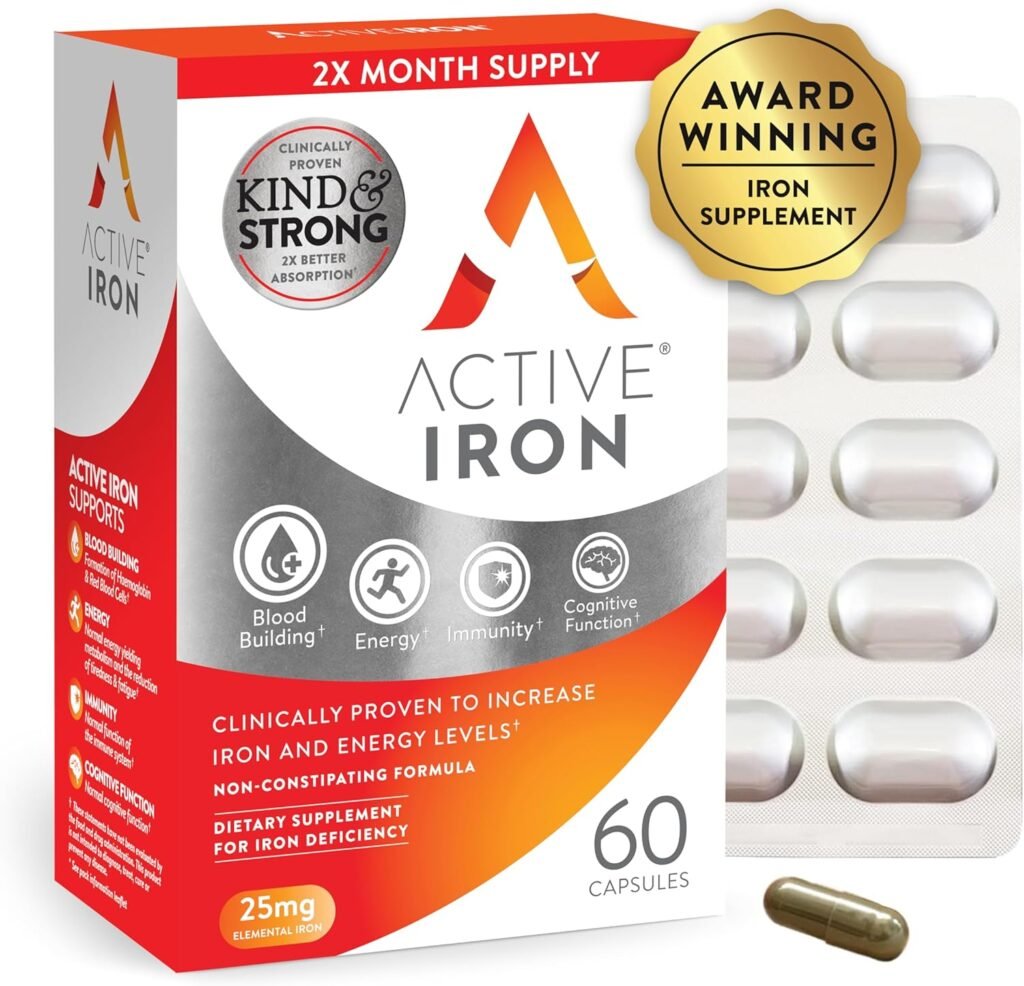The Importance of Iron in the Body
Iron is a vital mineral that plays an essential role in numerous physiological functions within the human body. One of its primary responsibilities is the transportation of oxygen through the bloodstream. Iron is a key component of hemoglobin, the protein found in red blood cells that binds with oxygen and facilitates its delivery to various tissues and organs. Without adequate levels of iron, the body’s ability to transport oxygen is compromised, leading to potential symptoms of fatigue and weakness.
Moreover, iron is crucial for the production of myoglobin, a protein that helps store oxygen in muscle cells. This function is essential for maintaining energy levels during physical activity. The presence of iron in enzymes and proteins also contributes to critical biochemical processes, including DNA synthesis and cellular respiration. Consequently, a deficiency of iron can disrupt these processes, negatively affecting growth, development, and overall health.
Inefficient iron levels are particularly detrimental to the immune system. Iron aids in the proliferation of immune cells and enhances the body’s ability to combat infections. Furthermore, it is involved in the production of neurotransmitters that are required for optimal brain function. Low iron levels can lead to cognitive impairments and mood disturbances, highlighting the importance of maintaining sufficient iron concentrations for mental well-being.
In addition to these physiological roles, adequate iron intake has been shown to improve mood and energy levels in individuals of all ages. A well-balanced diet rich in iron sources, such as red meat, legumes, and leafy greens, can help ensure that the body receives this essential mineral. By prioritizing iron in nutrition, individuals can support their overall health and alleviate some of the adverse effects often associated with iron deficiency.
Understanding the Causes of Iron Deficiency
Iron deficiency occurs when the body does not have enough iron to produce adequate hemoglobin, which is essential for transporting oxygen in the blood. The causes of iron deficiency can be broadly categorized into two main groups: inadequate intake of iron and excessive loss of iron. Understanding these causes can provide insight into the mechanisms behind iron deficiency and assist in developing effective strategies for prevention and treatment.
Inadequate intake is often seen in various dietary habits. A diet low in iron-rich foods such as red meat, poultry, fish, legumes, and fortified cereals can lead to insufficient iron levels in the body. Vegetarians and vegans are particularly at risk if they do not consume enough plant-based sources of iron, which are often in a less absorbable form compared to heme iron from animal products. Infants, children, and pregnant women also have higher iron requirements due to growth and development, making them more susceptible to deficiency if their diet does not meet these increased needs.
Excessive loss of iron may occur in individuals experiencing significant blood loss. This can happen due to heavy menstrual periods, pregnancy, or gastrointestinal bleeding from conditions such as ulcers or inflammatory bowel disease. In women, menstruation plays a crucial role in iron depletion, especially when cycles are particularly heavy. Furthermore, those with gastrointestinal disorders often face challenges in iron absorption, contributing to their vulnerability to deficiency. Groups with autoimmune diseases may also experience complications that hinder proper iron utilization and absorption.
Identifying these risk factors is essential for addressing and preventing iron deficiency effectively, especially among those who are more likely to suffer from it due to dietary choices or underlying health issues.
Recognizing the Symptoms of Iron Deficiency
Iron deficiency is a prevalent nutritional concern that can manifest through various symptoms, impacting an individual’s overall health and well-being. One of the most common signs of a lack of iron in the body is persistent weakness. A person may feel unusually fatigued even with adequate rest, as iron plays a crucial role in producing hemoglobin, which is necessary for transporting oxygen in the blood. This diminished oxygen transport can lead to feelings of constant tiredness and lethargy.
Further, many individuals with iron deficiency also report experiencing lightheadedness or dizziness. This debilitating sensation occurs when there is insufficient iron leading to inadequate blood flow to the brain. Such symptoms may not only disrupt daily activities but can also pose serious risks in certain situations, such as driving or operating machinery.
As iron deficiency progresses to iron deficiency anemia, more severe symptoms may emerge. Shortness of breath during routine activities or even at rest might become apparent, indicating that the body is struggling to deliver enough oxygen. In addition, individuals may experience heightened sensitivity to cold or chills, which can be particularly troubling during colder months. Mood disturbances, such as irritability or concentration difficulties, are also associated with low iron levels, affecting emotional health and cognitive function.
It is essential to understand that these symptoms can be indicative of other health problems as well. Therefore, monitoring one’s health through regular check-ups, including comprehensive blood panels, is crucial. Early detection of iron deficiency can help prevent the escalation to more severe iron deficiency anemia and its associated complications. Recognizing these symptoms is the first step toward ensuring adequate iron levels and maintaining overall health.
Steps to Correct Iron Deficiency
Addressing iron deficiency requires a multifaceted approach that combines dietary adjustments and, in some cases, supplementation. The first step in managing this condition is often to enhance iron intake through careful dietary choices. It is advisable to incorporate a variety of iron-rich foods into one’s diet. These include red meat, poultry, fish, legumes, tofu, and fortified cereals. Plant-based sources of iron, known as non-heme iron, should be consumed alongside vitamin C-rich foods like citrus fruits, tomatoes, and leafy greens. This combination significantly improves iron absorption in the body.
In addition to emphasizing iron-rich foods, it is crucial to be mindful of dietary inhibitors that can hinder iron absorption. Substances like calcium, tannins found in tea and coffee, and phytates present in whole grains and legumes can interfere with the body’s ability to absorb iron. Therefore, it may be beneficial to separate the intake of these inhibitors from iron-rich meals to maximize absorption efficiency. For individuals with dietary restrictions or who may struggle to meet their iron needs through food alone, iron supplements can serve as an effective alternative. These come in various forms, such as ferrous sulfate and ferrous gluconate, and should be taken under the guidance of a healthcare professional to avoid potential side effects like digestive upset.
A consultation with a healthcare professional is essential before initiating any form of treatment for iron deficiency. They can recommend tailored strategies based on individual health needs, personal dietary preferences, and any underlying health conditions that may affect iron absorption or metabolism. Regular monitoring of iron levels through blood tests may also assist in gauging the effectiveness of the chosen interventions. By taking these steps, individuals can effectively manage their iron deficiency and improve their overall well-being.


